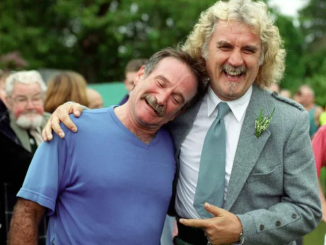
It’s crucial now more than ever to keep an eye out for dogs left in hot automobiles because summer is still going strong and temperatures are rising to record levels in many places.
Dogs who are left in hot cars will not survive for long due to their severe susceptibility to heat stroke. Accidents can still occur even if you believe you have done all the necessary safety measures to avert catastrophe.
That was the unfortunate situation that occurred recently when a police department K9 was left in a hot car without air conditioning and without emergency procedures in place, leading to his death.
Vader, a 4-year-old K9 with the Arnold Police agency in Missouri, passed away on July 31 from heat exhaustion, according to a press release from the agency.
Vader was left in a running patrol car with the air conditioner running, according to the department, which referred to this as a “necessary and common practice” for K9s who are not actively participating in police operations.
Officers found that the air conditioning system had broken down when they got back inside the car.
The police added that although all of their K9 patrol cars have a failsafe mechanism that sounds the horn, pulls down the windows, warns the handler, and triggers the alarms and sirens if the vehicle reaches a particular temperature, this emergency backup “failed to activate.”
After being taken to the veterinary facility in a hurry, Vader appeared to be improving, but he eventually passed away.
The Arnold Police Department posted, “Unfortunately, we learned last night that there were no further treatments available for Vader and he succumbed to his injuries.”
“Investigating this tragedy to determine what went wrong,” the department wrote in a letter. They also requested that people remember Vader’s handler and his family in their prayers and expressed their sorrow over his passing.
Understandably, the public has been devastated by the news and has experienced strong emotions; many have wondered if more might have been done to avert this disaster.
On Facebook, someone said, “Take the dog with you, just like a child. Common practice needs to change.”
For that reason alone, another person remarked, “These dogs should never be left in a car for an extended period of time, running or not.” “I know it was an accident, but nobody else should have to go through this.”
Others recommended enhancing or testing the emergency heat alarm system of the cars more frequently because it did not sound.
Vader is sadly not the only police dog to pass away after being left in a hot car; sadly, this happens frequently due to either officer negligence or—in this case—a malfunctioning air conditioner and backup system.
Horus, a second Missouri police dog, also passed away after being left in a hot car overnight, a few days before Vader did.
It is terrible that police dogs could suffer and even perish from a hot car since they put their lives in danger for their communities. Although emergency warnings and air conditioning are features of patrol cars, it is obvious that these devices are not infallible.
We hope that Vader’s untimely passing and the deaths of all the other K9 victims will spur more measures to safeguard their lives.
This woman only ate one piece of bread a day for 5 years – but look at her now

Despite efforts to accept ourselves at any size and more realistic-looking models in advertisements, a large number of people worldwide suffer from eating disorders on a daily basis.
A Derbyshire lady who overcame anorexia has shared her experience in the hopes that it would support others experiencing similar difficulties.
Annie Windley weighed just 29 kg, or slightly more than four and a half stone, at her heaviest. She was in danger of having a heart attack because of her low weight.

The 21-year-old Woolley Moor resident has been battling anorexia for more than five years, during which time she has required extensive care, medical therapy, and multiple hospital stays. Annie, on the other hand, is in great shape and has recovered thanks to her passion of jogging. In October of last year, I ran the Chesterfield Half Marathon.
She said, “I had the happy awareness that the process of rehabilitation is amazing and should be exhilarating, remarkable, and amazing.
I suppose my anorexia will always be a part of me, even though I’ve learned to manage it and get over my obsession with eating. “It is never too late to make a positive change.”
Annie was first diagnosed with an eating disorder in 2012. When her recuperation finally began two years later, she faced numerous challenges, including being sectioned and experiencing uncontrollably rapid weight loss.
In October of 2017, I began battling more fiercely than I had ever done before; she went on, “I can’t say exactly what occurred, but this time, it was just for myself.”

The battle was amazing; every day was filled with agonizing emotions and remarkable bravery. I’m at my heaviest since 2014 after gaining three stone in the last four months.
Annie claims that she gained the realization that a person’s actions, their mannerisms toward others, and their degree of kindness matter more than their physical stature. According to her, these are the things that truly matter in life.
“These are the things that are essential to you and will bring you happiness.” Rather than organizing your entire day around eating or worrying about how to restrict, use that time to focus on something that matters to people.

Be a kind friend and daughter, make jokes, and engage in conversation with them. Exercise is typically believed to enhance mental health, and Annie is no different. Her passion for running gave her something to strive for, helped her heal, and kept her on course.
Her recuperation was aided by her participation in Chesterfield’s yearly half marathon. She ran the kilometers during her training, putting in a great deal of work and determination to complete the difficult course.
I use my morning run as an opportunity to remind myself of how fleeting and important life is. I can live a more flexible, free life now that I’m well.

I’m fortunate to have strong legs and a pounding heart, so I don’t waste time worrying about meals or watching calories. Exercise is a celebration of what your body is capable of, not a way to make up for what you ate.
“Pay attention to your desire to succeed and your excitement for where you want to go.” Annie claimed that all she had ever done was avoid meals like pizza and chocolate because the voices in her head turned them into numbers and percentage signs.
She has thankfully altered her viewpoint and offers guidance to those who have similar views.

There are bad days when you think recovery isn’t for you, feel “fat,” and lack the desire to eat. However, that is the very reason we have to continue.
We have to demonstrate to our disorders our ability to do so. We don’t want to spent our entire lives regretting and feeling sad about the things our anorexia prevented us from accomplishing.
Watch the video below to see her entire story:
Please share your thoughts in the comments below on her amazing adventure!



Leave a Reply